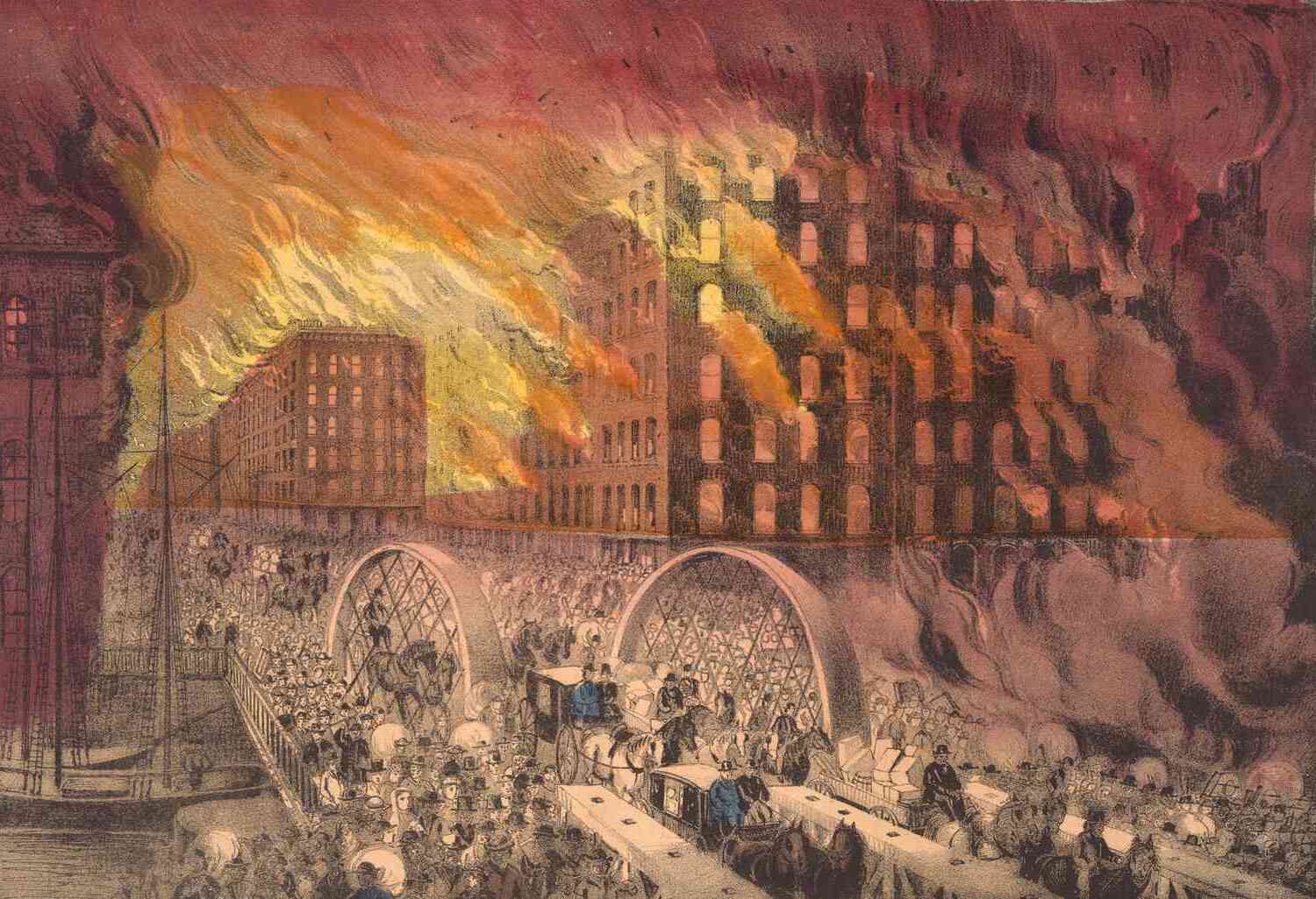
What happened in 1871? This year marked significant events that shaped history. The Great Chicago Fire devastated the city, leaving thousands homeless. Germany unified under Prussian leadership, altering European politics. The Paris Commune rose and fell, influencing socialist movements. The first Major League Baseball game was played, changing sports forever. Stanley met Livingstone in Africa, a moment immortalized in exploration lore. The Royal Albert Hall opened in London, becoming a cultural icon. The first U.S. patent for margarine was granted, impacting food industries. These events and more make 1871 a pivotal year worth exploring.
The Great Chicago Fire
The year 1871 is often remembered for the Great Chicago Fire, a devastating event that reshaped the city.
- The Great Chicago Fire started on October 8, 1871, and burned until October 10.
- It destroyed roughly 3.3 square miles of Chicago, leaving over 100,000 residents homeless.
- The fire killed approximately 300 people.
- Legend has it that the fire started when Mrs. O'Leary's cow kicked over a lantern, though this story has been widely disputed.
- The fire caused an estimated $200 million in damages, a colossal sum at the time.
- Despite the destruction, Chicago quickly rebuilt and emerged as a major city in the United States.
The Peshtigo Fire
While the Great Chicago Fire is well-known, another devastating fire occurred on the same day in Wisconsin.
- The Peshtigo Fire also began on October 8, 1871.
- It is considered the deadliest wildfire in American history, killing between 1,500 and 2,500 people.
- The fire destroyed the town of Peshtigo and surrounding areas, burning approximately 1.2 million acres.
- The Peshtigo Fire was overshadowed by the Chicago Fire, leading to less historical recognition.
Technological and Scientific Advances
1871 was a year of significant technological and scientific progress.
- The first cable car line in the world began operation in San Francisco.
- The first Major League Baseball game was played on May 4, 1871, between the Cleveland Forest Citys and the Fort Wayne Kekiongas.
- The British scientist James Clerk Maxwell published his theory of electromagnetism, which laid the groundwork for modern physics.
- The first U.S. patent for a rotary-dial telephone was issued to Almon Strowger.
Political Events
Several important political events took place in 1871, shaping the future of nations.
- The German Empire was proclaimed on January 18, 1871, marking the unification of Germany.
- The Treaty of Washington was signed between the United States and the United Kingdom, resolving various disputes.
- The Paris Commune, a radical socialist government, ruled Paris from March 18 to May 28, 1871.
- The British Columbia colony joined the Canadian Confederation on July 20, 1871.
Cultural Milestones
Cultural developments in 1871 left a lasting impact on art, literature, and society.
- The Royal Albert Hall in London was opened by Queen Victoria on March 29, 1871.
- Lewis Carroll published his novel "Through the Looking-Glass, and What Alice Found There," the sequel to "Alice's Adventures in Wonderland."
- The first edition of the "American Woman's Home" by Catharine Beecher and Harriet Beecher Stowe was published, promoting domestic science and women's education.
- The National Rifle Association (NRA) was founded in the United States.
Natural Disasters
In addition to fires, other natural disasters struck in 1871.
- The Orkney hurricane hit the Orkney Islands in Scotland on October 10, 1871, causing significant damage.
- A major earthquake struck the city of Iquique in Chile on May 9, 1871, resulting in widespread destruction.
Notable Births
Several influential individuals were born in 1871, who would go on to make significant contributions to various fields.
- Orville Wright, one of the Wright brothers who invented the first successful airplane, was born on August 19, 1871.
- Ernest Rutherford, known as the father of nuclear physics, was born on August 30, 1871.
- Stephen Crane, author of "The Red Badge of Courage," was born on November 1, 1871.
- Marcel Proust, the French novelist best known for "In Search of Lost Time," was born on July 10, 1871.
Notable Deaths
The year also saw the passing of several prominent figures.
- Charles Babbage, the English mathematician and inventor who conceptualized the first mechanical computer, died on October 18, 1871.
The Last Word on 1871
1871 was a year packed with significant events and remarkable changes. From the unification of Germany to the Great Chicago Fire, these moments shaped history in ways still felt today. The year also saw the founding of the National Rifle Association and the opening of the Royal Albert Hall, adding layers to its historical importance.
Understanding these events gives us a clearer picture of how the past influences the present. Whether you're a history buff or just curious, knowing these facts can deepen your appreciation for the world's complex tapestry.
So, next time you hear about 1871, you'll know it wasn't just another year. It was a pivotal moment that left an indelible mark on history.
Was this page helpful?
Our commitment to delivering trustworthy and engaging content is at the heart of what we do. Each fact on our site is contributed by real users like you, bringing a wealth of diverse insights and information. To ensure the highest standards of accuracy and reliability, our dedicated editors meticulously review each submission. This process guarantees that the facts we share are not only fascinating but also credible. Trust in our commitment to quality and authenticity as you explore and learn with us.


